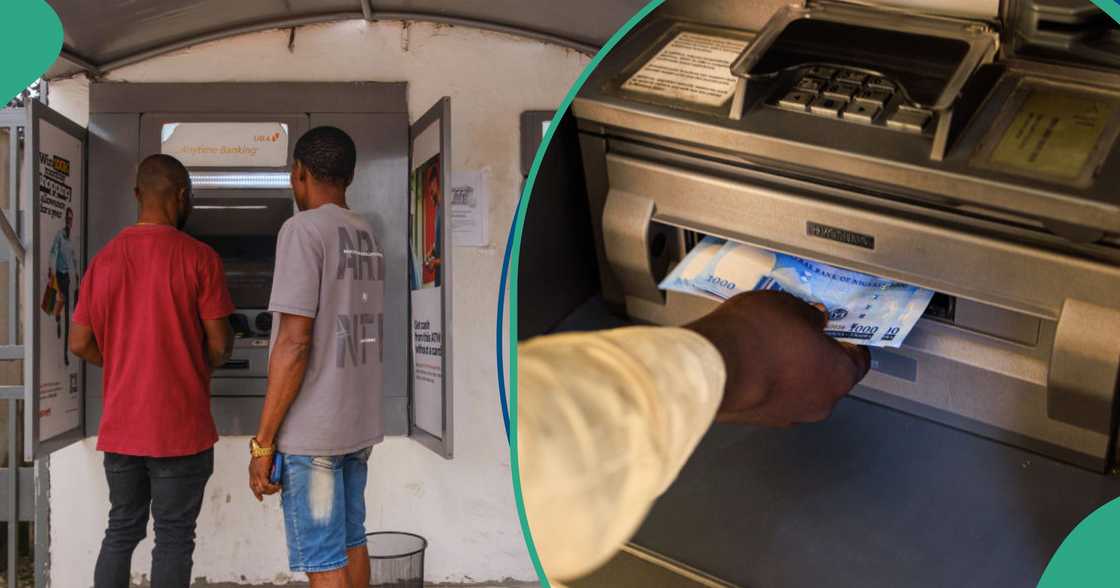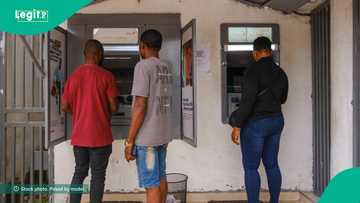Financial Inclusion: How Nigeria Moved From ATMs to a POS-driven Economy
- As the Central Bank of Nigeria continues to drive the vision of a cashless economy, Nigerians appear to be resorting to PoS operators
- Experts have pointed out that the proliferation of PoS agents means that most Nigerians can access PoS operations easily
- The CBN has initiated policies to make banks revive their ATMs and put them into use for the customers
Don't miss out! Join Legit.ng's Sports News channel on WhatsApp now!
Legit.ng journalist Ruth Okwumbu-Imafidon has over a decade of experience in business reporting across digital and mainstream media.
The Central Bank of Nigeria (CBN) has made no secret of its intentions to drive a cashless economy and improve digital and financial inclusion in Nigeria.
To this end, it has rolled out several policies limiting withdrawals and very recently, imposing charges on cash withdrawals from the ATMs.
Despite these, Nigeria is still far from going cashless and instead Nigerians now resort to the nearest source of cash when the need arises.

Source: Getty Images
The rise of PoS agents as ATM patronage declines
ATMs came into Nigeria in the 1990s and for the next three decades, it was the symbol of 24/7 access to cash, even when the banking halls were closed.
But by 2023, it became a regular occurrence to see an ATM without cash. Several reports have confirmed that 4 in every 5 ATMs in Nigeria hardly ever have cash, and are rather left to accumulate dust.
A Vanguard report traces this issue to the naira redesign in 2022/2023 when many banks started rationing cash to drive the CBN cashless policy. At the time, POS agents became the more reliable source of cash in the cash crunch era, albeit for very high charges.
Even after the era passed away, PoS agents seem to now be at the core of convenience banking with the likelihood of running into one agent in every two streets, especially in metropolitan cities like Lagos.
Reports say there are as many as 1.6 million PoS agents in Nigeria, making it more likely to run into a PoS agent than to come across a bank ATM that has cash.
The CBN reported a massive rise in point-of-sale (PoS) transactions, which now outpace ATM usage.
In H1 2024, Nigerians conducted transactions worth N85.91 trillion via POS terminals, far exceeding the N12.21 trillion recorded for ATMs. The most common reason was the absence of cash at ATMs and the ease of accessing POS.
Why ATMs never have cash?
One of the more common reasons put forward is the security situation in the country. During the cash crunch, some bank branches were attacked and their ATM points were vandalised.
In addition to this, ATM points became the target point of criminals where they could attack unsuspecting bank customers after their cash withdrawals.
Also, incidences of machine tampering and card skimming led customers to become wary of using ATM points, just as the banks become reluctant to keep them functional.
The Vanguard report also pointed to the high cost of maintaining the ATM in terms of security, power supply and other maintenance costs, making it burdensome for the banks.
In light of this, it comes off as more cost-effective to have mobile money agents or registered POS agents take on the risk for the banks.
CBN tries to revive bank ATMs
Experts opine that ATMs will continue to play lesser roles in the financial ecosystem, especially with the new features for mobile transactions including QR code payments.
CBN has also released phone numbers that Nigerians can report to when a bank's ATM has no cash for withdrawal.
With the advancement of security architecture like surveillance cameras, real-time tracking and fraud detection, more banks can return to keeping the ATMs active and functional. They would also be trying to avoid the CBN sanctions.
Also, installing deposit-taking ATMs can ensure that the machines rarely run out of cash, thus reducing the need for frequent restocking, while using solar alternatives can keep the ATMs always functional at reduced cost.
CBN introduces new ATM charges
In related news, the CBN has rolled out new charges for ATM withdrawals in a bid to encourage Nigerians to go cashless.
The apex bank also explained that this is to help banks offset the high charges associated with keeping ATMs operational.
Customers could end up paying charges as high as N500 for N20,000 cash withdrawals from an off-site bank ATM.
Proofreading by Nkem Ikeke, journalist and copy editor at Legit.ng.
PAY ATTENTION: Сheck out news that is picked exactly for YOU ➡️ find the “Recommended for you” block on the home page and enjoy!
Source: Legit.ng






